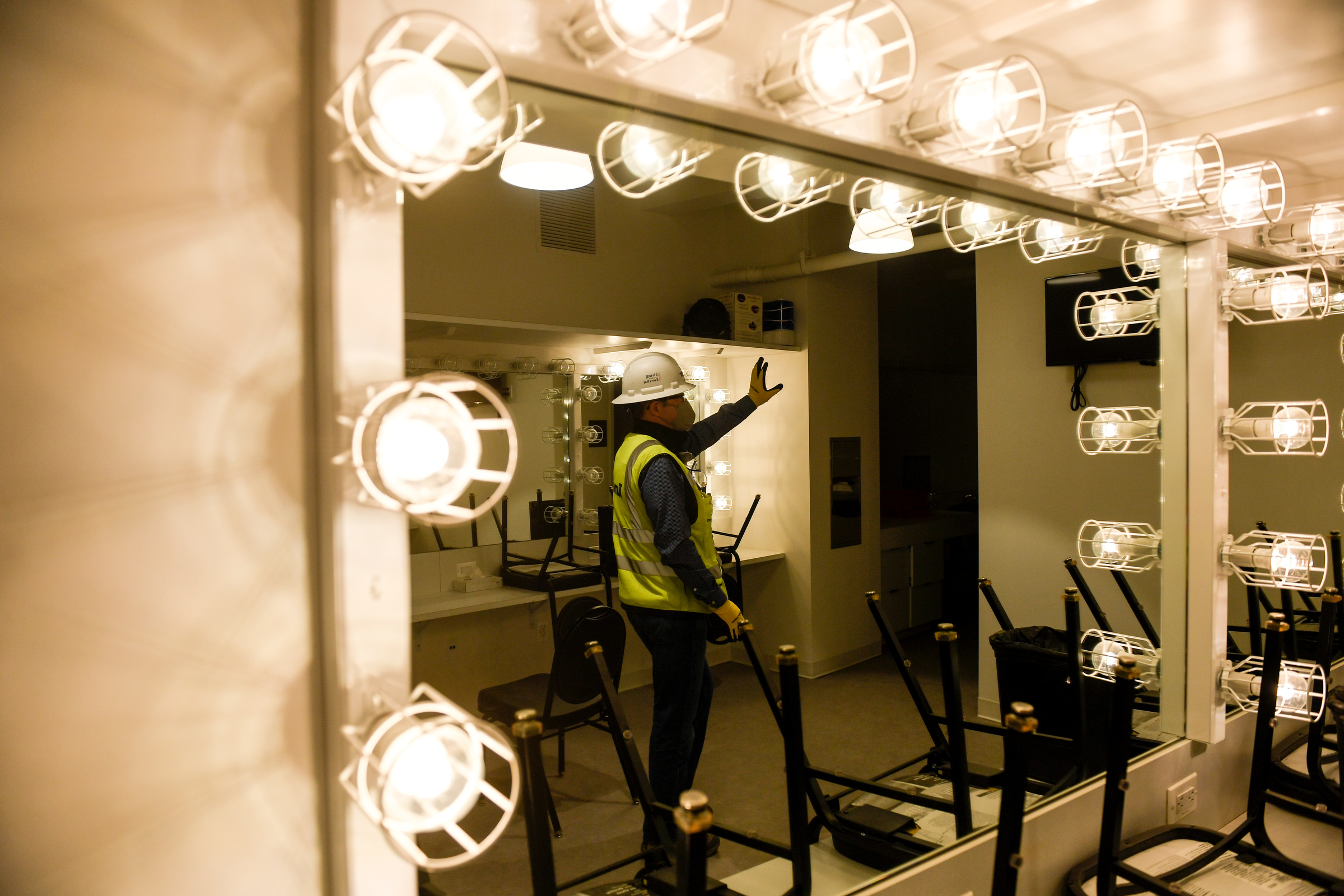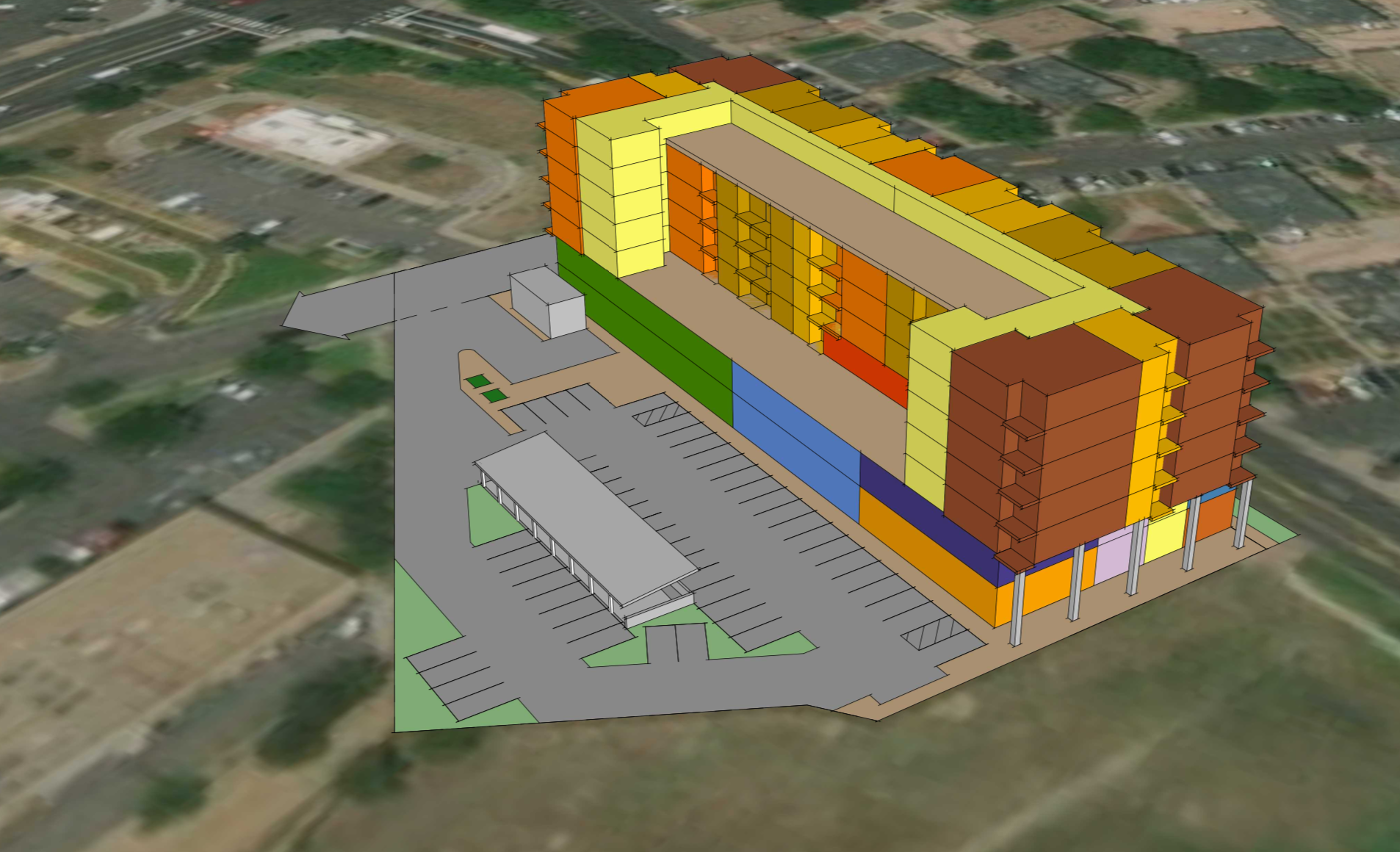
The Helen Bonfils Theatre Complex is getting a $36 million refresh. Here’s a peek inside.
Renovations for the trio of Denver Center for Performing Arts venues are almost complete
By John Wenzel, The Denver Post Jan 14, 2021, 6:00 am
The $36 million makeover of the Helen Bonfils Theatre Complex is nearly complete. All the Denver Center for the Performing Arts needs is audiences.
“Right now, John Ekeberg (Denver Center’s executive director of Broadway) has ‘My Fair Lady’ ready for August, which could be our first show in the comeback,” said Janice Sinden, president and CEO of Denver Center for the Performing Arts. “But we don’t know. We’re going to make sure that public health is first in our order of priorities.”
The temporary but indefinite idling of public life has brutalized arts and culture nonprofits, including Denver Center, one of the nation’s largest theater producers. The nonprofit last year was forced to lay off more than half of its employees and cancel or postpone all performances from mid-March on.
With no programming, Denver Center’s fundraising and disaster planning took center stage. But so did, necessarily, its Bonfils Theatre renovation project, which was already busy updating the 185,000-square-foot complex. It helps that Semple Brown principal Chris Wineman, who’s leading the master plan and design of Bonfils, was the former executive director of Denver Center Theatre Company from 1994 to 1997.
“I’m a client, and a user, and a former occupant,” Wineman said. “What makes this project unique is the ability to ask people who work there, some for 40 years, what they’ve got coming up. Jeff (Gifford) is a great example of that.”
Like everyone else, Denver Center officials had no choice but to adapt to state health mandates once the coronavirus pandemic arrived. But it wasn’t all bad, said Gifford, Denver Center’s director of production and the construction manager on this project.
“Originally it had been planned as an occupied renovation, with shows being produced in the theaters and us working around it,” Gifford said. “Once we shut down, all the construction companies got to take over the entire building, which has been great for them in some ways because they don’t have to clean up every night.”
Between 75 and 100 construction workers are on-site most days, Gifford said, and the shutdown has allowed them to social distance as needed. The overall project is slated to finish up in mid-March or early April of this year, although it will be a few more months before the public can explore new mid-level lobby areas, restrooms, volunteer areas, improved accessibility and refreshed decor.
On Wednesday, Denver Center officials announced the latest piece: a name change for the complex’s final theater (it has four — plus a ballroom). The Space Theatre will be renamed the Dorota & Kevin Kilstrom Theatre, owing to a gift from Kevin Kilstrom, the Denver Center board member.
Previously, the complex’s Stage Theatre was renamed the Marvin & Judi Wolf Theatre. Its Ricketson Theatre will soon be the William Dean Singleton Theatre, after The Denver Post’s former publisher.
“It’s been such an awful, hard year, but that (Kilstrom) gift blew us away,” Sinden said. “They wanted to do a challenge match for a portion of their gift, so they approved $300,000 to be a driver for other donors. That’s helping us generate our additional money for the capital campaign.”
Named for philanthropist, heiress and former Denver Post owner Helen Bonfils, the theater complex has long attracted the goodwill of Denver’s deep-pocketed boosters. Its current campaign is 92% funded, thanks in part to $10.5 million in gifts from Denver Center’s 23-member board. The Bonfils Complex is owned by the city, just like the Denver Performing Arts Complex around it, but leased to Denver Center for $1 a year thanks to a gift from late Denver Center chairman and philanthropist Donald Seawell (who purpose-built the theaters in 1979).
More than half of the renovation funds, or $19 million, came to the Denver Center in 2017 after voters overwhelmingly approved a $937 million package for various civic and cultural improvement projects.
But four decades of artistic and technological evolution — not to mention a pandemic — can complicate even the most thoughtful plans. While construction sped up in some ways last year, it stalled in others. Manufacturers such as SteelDeck, a New York company, were delayed in sending items like custom stage platforms to Colorado due to restrictions in their home states.
“All in all our schedule has slid about two months,” Gifford said, “which is not so bad in the end because this is a two-year project.”
“It’s complicated by the overlapping nature of the spaces,” Wineman said. “But that also gives us the chance to rethink pathways, audience flow, and accessibility in the audience and backstage. Making catwalks movable, taking out unused hydraulics and cleaning up storage spaces has opened up a lot of space.”
The refreshing has been a long time coming, Denver Center officials say. And their hope is that they won’t have to do it again for another few decades.
“Imagine where computers were at in the 1970s, when this was built,” Gifford added. “And then think of how automated and software-driven everything is now. We had to strip back these rooms to the concrete and wire them for that. Not just for today’s standards, but so we can continue to adapt and evolve into the future.”







